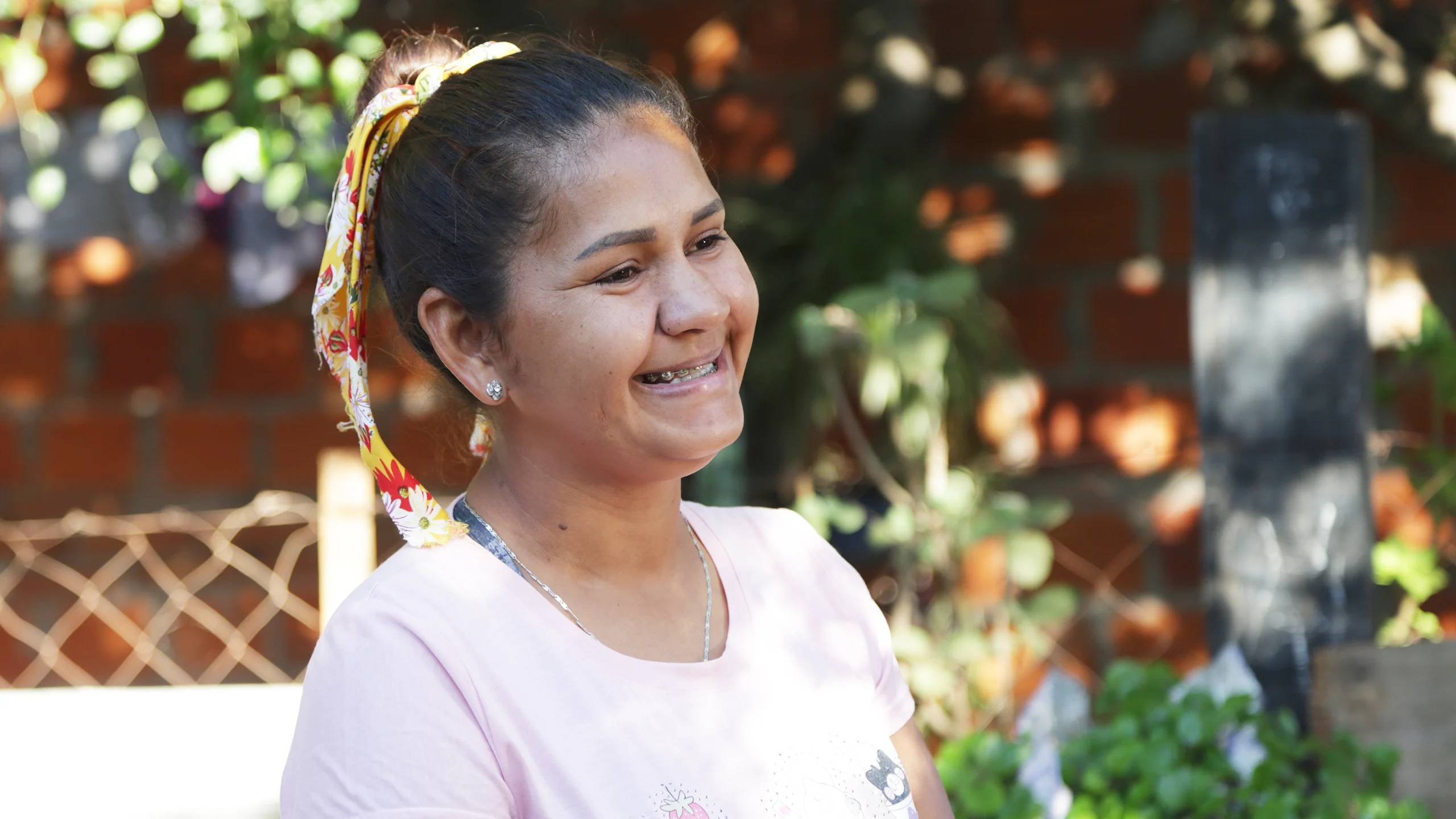MAURA'S PLAN

1. Start a business with the resources at hand.
2. Enhance quality and increase demand.
3. Create a path out of poverty and a future for her children.
Maura is a 28-year-old mother of two who lives in Paraguay and works as a ganchera. This is the name given to people who look for and separate recyclable materials such as plastic bottles and aluminum cans from waste and then either sell it to recycling companies or keep it for their own use.
“We are a family of waste pickers,” explains Maura. “We work at the Cateura dump. I am a ganchera, my mother is a ganchera, and so are most of my relatives.” It is estimated that at the landfill where Maura collects materials, there are about 600 people engaged in this work, the majority of whom are women. Gancheras often work in precarious conditions, surrounded by trash and waste and exposed to diseases and insects. Despite the importance of this work in reducing landfill, waste pickers are often marginalized by society, which views them as low-income and poorly educated.
“There are few opportunities for young people in the country. ... The last thing you want to see is your child [picking waste] under the sun,” says Maura – who, envisioning a different future for her children, took a bold and unexpected step.
Recycled beauty
Sifting through waste, Maura began searching for beauty. She started using found items – fabrics, carpets, artificial flowers, vases and structures – to create decorative pieces for special events like celebrations and reunions. She set up a workspace, a storage area and even a shop in her home. A decoration business was born.
Keen to grow and improve her business, Maura entered a competition for seed capital through Plan International’s Sape’a 2.0 program – and won. She spent the money wisely, investing in design materials, tools and worktables. Sape’a 2.0 also offered training, through which Maura learned to write a business plan, calculate costs and set prices.
I learned that I have to value my work, that I don’t have to give away what I do.
Today, Maura’s business not only boosts the circular economy but also allows her to generate income to improve her family’s quality of life. While she is encouraged by her clients’ growing admiration, her greatest source of pride is her ability to get ahead in life with scarce resources. Or, as Maura puts it, “starting from the bottom and always looking up.”
HOW PLAN INTERNATIONAL HELPED
Launched in 2019, the Sape’a 2.0 program supports economic justice for young people, especially women, in Paraguay. Its aim is to help them overcome barriers and stereotypes and facilitate their integration into the world of work under favorable conditions.
BY THE NUMBERS
Sape'a 2.0 program highlights
- Young people reached: 4,120.
- Young people who received seed capital to start or strengthen their ventures: 300.
- Young people who developed new innovative ventures with competitive funds: 25.
- Young people who have an approved business plan: 1,451.
- Young people who received training to innovate in their ventures: 60+

